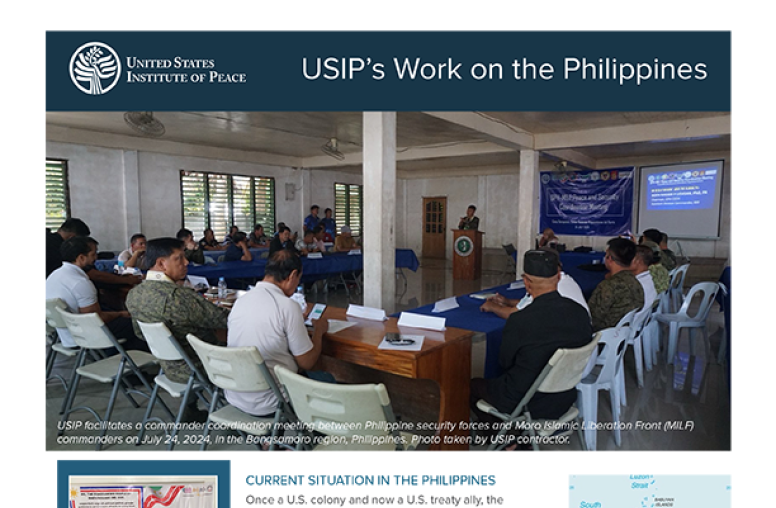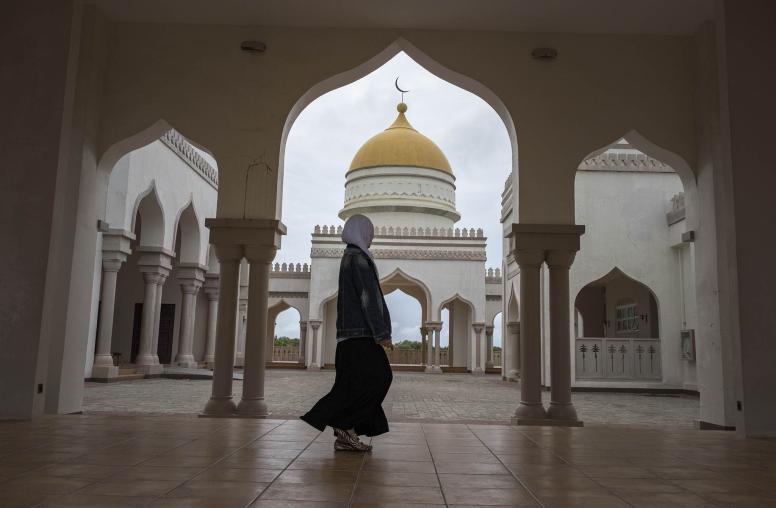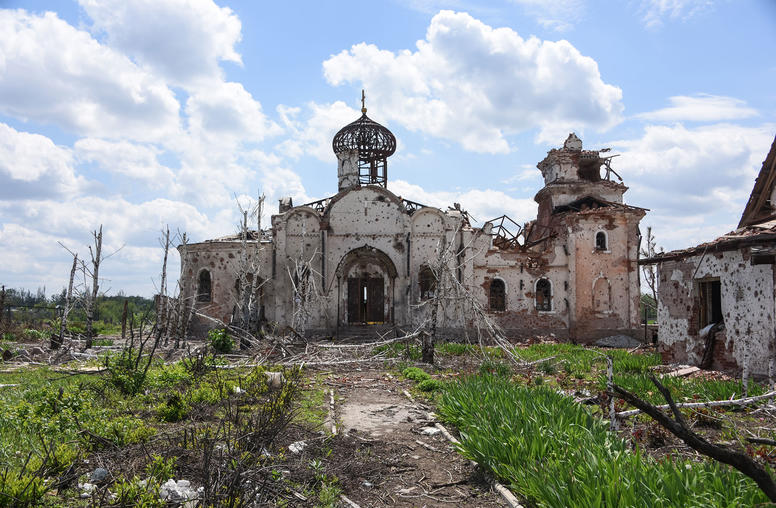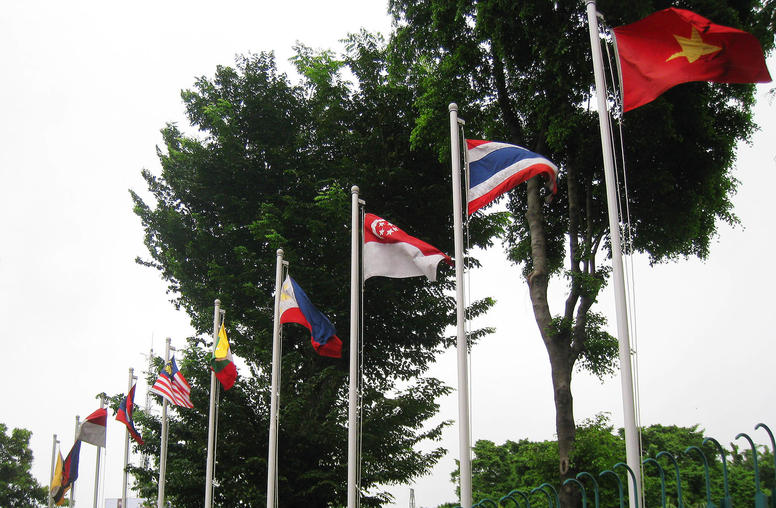 Philippines
Philippines
The Philippines — an archipelago of more than 7,000 islands that was once a U.S. colony and is now a U.S. treaty ally — faces challenges to internal stability and sits at the crosshairs of geopolitical contestation in the Western Pacific. With decades of experience in the Philippines, USIP programming has expanded rapidly since 2022 along three lines: ground-level support to the Bangsamoro peace process, which is the greatest opportunity for sustainable peace in Mindanao in generations; bolstering the U.S.-Philippines alliance and coordination with like-minded nations to promote regional peace and stability; and advancing peace education efforts.
Learn more in USIP's fact sheet on The Current Situation in the Philippines.
Featured Research & Analysis

Philippines: Former Combatants Help Keep the Peace During Recent Polls
By: Haroro Ingram, Country Director, Philippines, USIP
For decades, the struggle for peace in the Philippines’ southernmost island of Mindanao has been characterized by armed conflict between the Philippines government and Moro separatist groups, like the Moro Islamic Liberation Front (MILF), and cycles of failed peace processes. The historic 2014 peace agreement between the Philippines government and MILF led to the granting of greater self-governance with the creation of the Bangsamoro Autonomous Region in Muslim Mindanao (BARMM) five years later. What has followed since is an unprecedented, yet very fragile, period of peace and stability.

The Current Situation in the Philippines
Once a U.S. colony and now a U.S. treaty ally, the Philippines sits at the heart of geopolitical contestation in East Asia. It is also home to a half-century old internal conflict that has long spawned transnational threats to global security.

What Delaying Bangsamoro’s Election Would Mean for Peace in the Southern Philippines
It’s been a decade since the Moro Islamic Liberation Front (MILF) and the Philippines government signed the Comprehensive Agreement on the Bangsamoro, which ended nearly 50 years of conflict in the southern Philippines. Despite setbacks and tensions along the way, implementation of the agreement has yielded notable successes in recent years — most notably the establishment of the Bangsamoro Autonomous Region of Muslim Mindanao (BARMM) in 2019 and, with it, an unprecedented period of relative peace and stability. However, the final months of 2024 have brought yet another twist in this long-standing struggle for peace in the Bangsamoro region.
Current Projects

Religious Women Negotiating on the Frontlines
In recent years, peace processes — such as the track 2 intra-Afghan negotiations — have shown that on both a moral and practical level, women’s inclusion is essential. Women’s involvement in peace processes increases their likelihood of success and longevity and can increase legitimacy. While more literature on women contributing to mediation and negotiation efforts is slowly being produced, little attention is currently being paid to the already existing work of women who employ their faith and mobilize religious resources for peacebuilding.

Religion and Conflict Country Profiles
USIP’s Religion, Peace and Conflict Country Profiles (RPACCs) are concise analytic overviews of the religious landscape in countries at risk of, currently experiencing or recovering from violent conflict. RPACCs are intended to be used primarily by policymakers and practitioners looking to develop rapid familiarity with the nature and status of religion in a given country of interest as well as to understand how religion intersects with conflict and peace dynamics. The RPACC series is an outgrowth of USIP’s previous work on Religious Landscape Mapping in Conflict-Affected States.

Southeast Asia in a World of Strategic Competition: An Essay Series
Great power rivalry between the United States and China is frequently described in bilateral terms, with regions of the world — including Southeast Asia — merely serving as arenas of competition. But this framing ignores the agency of third countries in managing the risks and opportunities presented by this competition. To explore these countries’ agency and the corresponding policy options, this USIP essays series includes contributions from 10 Southeast Asia-based experts. Each essay provides one country’s perspective on how the members of the Association of Southeast Asian Nations (ASEAN) perceive and respond to strategic competition between the United States and China.